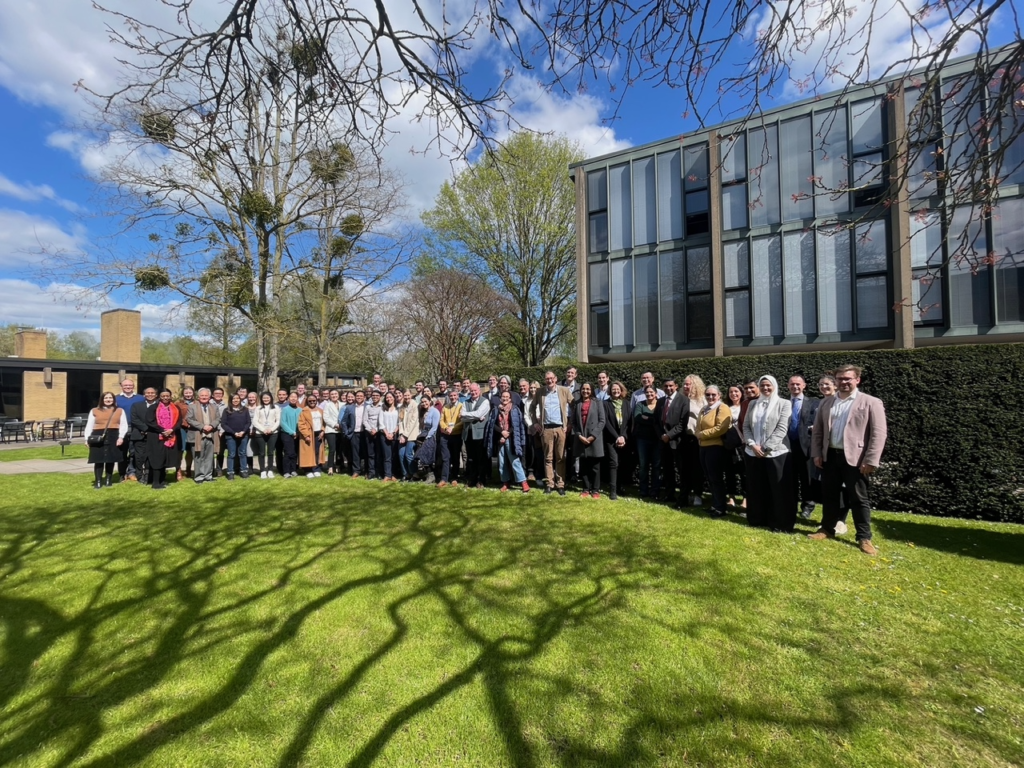St. Catherine’s College, Oxford, known for its mid-century modernism and timeless design, provided an ideal setting to host a workshop that brought together clinicians and scientists from various disciplines to explore the use of clinical genomics in the context of monogenic forms of inflammatory bowel disease. This workshop aimed to summarize recent developments in the field of genetics and immunology to improve patient care for individuals with gastrointestinal immune system problems.

Inflammatory bowel disease, which includes conditions such as Crohn’s disease and ulcerative colitis, affects millions of people worldwide. While significant progress has been made in understanding the causes of those major forms of IBD, a small percentage of patients may have different genetic and immune causes underlying their condition, as inborn errors of the immune system can present with symptoms similar to IBD. Monogenic forms of IBD, although rare, profoundly impact patients’ quality of life and pose significant challenges due to the limited effectiveness of conventional treatment options. With over 100 known genetic causes that can disrupt the immune barrier and lead to intestinal inflammation, diagnosing these conditions accurately is often a complex and protracted process, with patients and their families encountering multiple doctors and enduring long diagnostic journeys.
During the workshop, Professor Holm Uhlig from Oxford University discussed the roadmap to improve patient care, emphasizing the need to understand how genetic variants affect barrier function and immune cell dysfunction in the gut, how to effectively diagnose these gene defects, and how to identify the most suitable medications for different patients. He highlighted that the workshop provided an amazing opportunity to bring together clinicians and scientists to explore strategies for implementing genomic medicine care pathways in routine National Health Service (NHS) care, ultimately introducing the concept of precision medicine.
The workshop provided ample opportunities for those attending to contribute. One of the participants, Professor Ian Sanderson, shared his experiences from 30 years ago when he encountered children with likely genetic causes of intestinal inflammation.
Ian Sanderson recalled patients, including two pairs of siblings, with severe symptoms, resistant to conventional therapy but with no ability to make a specific diagnosis. The advancement of genomics in IBD, to NHS implementation for these children, has occurred over his career in paediatric gastroenterology and has accelerated hugely in the last five years.
The central goal of a transformative project supported by the NHS is to establish a network of multidisciplinary teams that enable medical professionals to discuss patients for whom a genetic cause of the disease could inform precision medicine interventions. By setting up these networks, specialist advice and support will become more accessible to trusts across the Central and South region, encompassing Southampton, Oxford, Birmingham, ultimately informing the best possible treatments and care for patients.
Dr. James Ashton, from Southampton Children’s Hospital and Dr. Wolfram Haller from Birmingham Children’s hospital discussed the different populations served by hospitals throughout the UK and explained the concept of purpose-built local settings that integrate within a network of specialists. James Ashton explained that ’designing the infrastructure and expertise to implement genomic medicine for monogenic IBD must be focused on the specific needs of the population, which will vary from region to region’. The importance of links of regional services to national networks were also highlighted by the team across the Central and South region.
